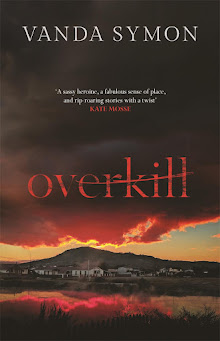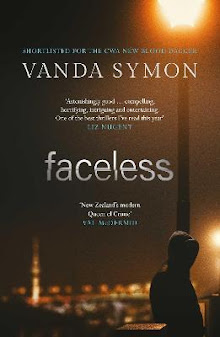
I mentioned in an earlier posting that hearing Kate Atkinson read from When will there be good news lent an extra humour to this book, which I finished reading last night.
It is a terrific story, but what really stands out is the characters. From Reggie - a sixteen-year old who is wise beyond her years, yet innocent and like a little terrier, determined that people are going to take seriously her concerns about the sudden disappearance of her employer and friend Dr Joanna Hunter; to Joanna herself, a child survivor of her family massacre and now potential victim.
This is a Jackson Brodie novel, but Jackson isn't the star player here, in fact he is incapacitated for much of the novel. When he does get involved, he's injured and not one hundred percent. We also get re-acquainted with Detective Chief Inspector Louise Monroe, whose new found domesticity is not sitting well, especially when Jackson comes back into her life.
The author's skill and the pleasure it brings comes from the interweaving of these stories, the intersections, some not even apparent until the very end. Who are victims, who are survivors, and whose mettle will shine through?
For me the star is Reggie, her tenacity and straight forward approach to life make this novel shine. I enjoyed it immensely and I hope we meet up with Reggie again someday.









4 comments:
Lovely review Vanda thank you. Bookman Beattie said he found the sense of foreboding in the book hard to take - how about you? Did Kate A's reading help dilute that a little? I loved her reading the book and intend to read it. I've just started Arnold Zable's The Sea of Many Returns after hearing his reading at the festival which gave me goosebumps. Have a good day.
I didn't have a sense of foreboding, but certainly a sense of hurtling along towards something momentous.
Kate's reading altered the mood for me, so that probably helped. I read it through the eyepiece of black humour. Bookman Beattie had finished the novel before her session and had found it bleak, so I wonder if his overall impression changed in retrospect.
The character Reggie kept the novel balanced. Jackson and Louise had a lot going on in their lives which was quite depressing, almost, but Reggie's charm and unpretentiousness kept the book buoyant for me.
Since we read in silence what does that say about author's voice guiding the reading rather than an authorial voice?
I find it hard to read - as an example - Alan Bennett without hearing his voice in my head. That only happened because I heard a series of radio broadcasts.
Also once I heard Dylan Thomas reciting Especially when the October wind with frosty fingers ...
Now I hear his voice for the opening line - and I do not like it!
So do we have to hear an author to really get the jokes, the pathos, the bathos, the parody, the irony?
My vote is for the multiplicity of interpretations.
It shows how much our personal head space at the time brings to something we are reading. Rachael King's blog The Sound of Butterfiles has been having an interesting discussion on Wuthering Heights, which was inflicted upon so many of us at school, and which the commenters have re-read in later life, when they've actually had relationships and loves and found it quite different.
On the author's voice, sometimes it helps, sometimes it doesn't. It helps when the author can actually read in an entertaining way, or perform, if that word can be used without inducing a cringe. I have been to festivals and listened to authors read only to think my eight-year old would make a better fist of it, and it has completely destroyed the story for me. So it's not always a good thing.
I don't think hearing a man reading the voice of a woman character would do it for me either. I'd forever have that guy in drag thing invading my headspace!
Post a Comment